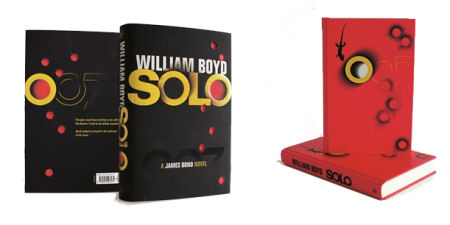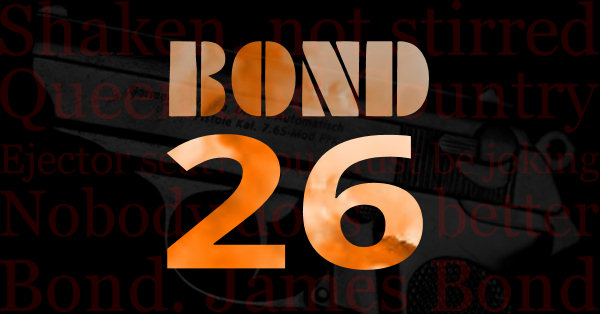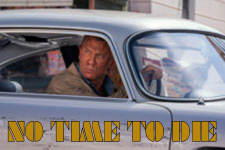
Writing a Bond novel must be pretty tough. After all, many have tried to take on the heavy yoke of expectation that surrounds anything even loosely associated with Britain’s cold war master spy, James Bond, 007. In 2012, Sam Mendes’ latest cinematic effort, Skyfall seemed to suggest that Daniel Craig et al were just getting started with a stylistically re-imagined and brutally contemporary reboot of a character born from the Allied struggle against first the Nazi’s and then the Communist Russians.
From this writer’s perspective, since Casino Royale, there has been a discernible shift towards a more retrofitted, hyper-real version of Bond, tapping into the dark, violent character portrayed in Fleming’s 50‘s novels and ditching the corny humour and the cartoonish bad guys that the latter films were infamous for in the process. To quote Skyfall, ‘sometimes the old ways are best’. Once seen, Skyfall was dubbed a blockbusting triumph fit to mark 50 years of Bond on our screens by critics and fans across the globe.
Yet in the aftermath 2013 has been a relatively quiet year for all things Bond. Cue the latest chapter in the story of a decidedly 21st Century 007; William Boyd’s new novel, Solo. The third Bond book to be written in five years, Solo follows in the wake of Jeffery Deaver’s Carte Blanche and Sebastian Faulk’s Devil May Care.
Interestingly Boyd has decided to write a period piece set in 1969 returning to a tac previously adopted by Faulk in Devil May Care. Solo’s opening sequence finds Bond nursing a sore throat following a solitary evening spent morbidly celebrating his 45th Birthday in the extravagant surroundings of the Dorchester hotel in London. The plot then takes our hero from London to the fictional war torn African republic of Zanzarim, the object of his mission – to stop a civil war that threatens to erupt into a full blown international conflict.
What is very interesting about Solo is that Boyd tries to authenticate Bond’s identity as a weather worn and battle-born soldier, an aspect of his character previously unexplored by any of the Bond authors. In this case Boyd revisits the past in an attempt to bring something new to the table but also adds depth through a solidification of his historical origins. The Bond we are introduced to here is tired and ill, plagued with nightmares. He’s feeling his age. (Its a nice continuation of Fleming’s You Only Live Twice and The Man With The Golden Gun where Bond is a spent force, prodded and conjouled by M to prove himself worthy of the rank he boasts.)
In Solo the brief is vague. Once in Zanzarim events mysteriously unfold. From the readers’ perspective, Boyd has the deft ability to slowly breath life into the dry bones of his narrative. But instead of the expected, something entirely unexpected is fleshed out. Bond displays some wholly uncharacteristic traits throughout Solo which only adds to the mystery. At one point Bond turns sleazy voyeur, a petty housebreaker. Once in Zanzarim, he becomes the voluntary humanitarian when encountering starving children. Boyd’s character strays into thoroughly un-Bond like waters indeed. At points he seems slightly toothless – a man sceptical of his orders, weaponless and clueless. Boyd’s Bond is somehow broken by his past and his present.
Solo, however, is a tale of two halves. From Zanzarim, Bond jets to Washington, USA, in search of brutal retribution – a solo mission with pure and violent revenge as his only motive. From here on in we begin to see Boyd evoke the spirits of Daniel Craig or, whisper it, Timothy Dalton as his Bond blueprint. This translates to lots of gratuitous violence – a trademark synonymous with how Fleming portrayed his Bond originally. It’s a masterstroke here that saves Solo from becoming sombre and uninspiring.
If Fleming’s novels can act as a signifier for everything that seemed exciting about the world in the twentieth century (i.e. the blatant connections with emerging mass-consumerism and branding, the exhilarating exciting modernity of an ever expanding exotic world for Bond to explore, the promise of powerful technologies only dreamt of in fiction, leisure and decadence – an idea that seemed so appealing to a new middle class who dreamt of flying to far-flung locations, eating foreign foods that were unattainable in a country that was still in the grips of rationing long into the 1950’s etc) then Solo might just be how Boyd sees the world in the twenty-first century.
Everything about Solo lacks the buoyant enthusiasm in which Fleming described the world which he saw and subsequently wrote about. The vibrant wonder is gone, replaced with a grim vision of modern day reality – poverty, greed and suffering. Boyd’s Bond universe is the anthesis to Fleming’s in that marvel has been substituted for cynicism – grime instead of glamour. Solo is more reminiscent of ‘The Professionals’ or ‘The Saint’ – a studio set narrative crying out for some old world glitz, but what we’re given is Bond on a budget set in the impoverished third world.
However, Boyd has somehow harnessed the notion of dystopic hopelessness infused with global geopolitical issues that question Western ethics to develop Bond into the only natural and realistic character that years of pain, struggle and tragedy would mould him into. In this way, Solo and Boyd’s Bond is a perplexing paradox. A ruthless, untouchable lone wolf who has been given ‘feelings and frailties’.
Here then lies a problem with Solo. Bond’s realness is too real. For this reason alone, Solo, for me, takes Bond where he should never go – reality. For many Bond has always been about escapism. The bright lights of a dangerous yet alluring existence where we are invited to live decadent and indulgent lives has always seemed so attractive. By shedding the trappings of a world tinged with elements of elegance, exoticism and fantasy one feels slightly robbed of the wide-eyed, boyish, rambunctious swashbuckling that typified Fleming’s work.
Despite this, Solo is a brave and compelling attempt at developing a character we are very familiar with. Maybe, though, we want to admire our heroes from afar rather than becoming privy to all their unattractive weaknesses. The mundane everyday has never been enough to get the blood pumping…sometimes those old ways truly are the best.
Buy Solo from Amazon:
UK: Hardback | Kindle
US: Hardback | Kindle










October 8th, 2013 at 19:49
Excellent review. Very objective, with the cons illustrated, yet rescued by the pros. – – – RD
November 6th, 2013 at 04:29
I thoroughly agree with your review. Solo was more LeCarre than Fleming. That is my argument with the Craig films, the fun and wonder has been taken away. When I wrote The Curse of the Crimson Dragon, I did it with that boyish wonder Fleming was famous for… It was my homage to him. It was that escapism which attracted me to his books. I’m so sorry that these new authors are getting it all wrong. You’d think the Fleming estate would get it.